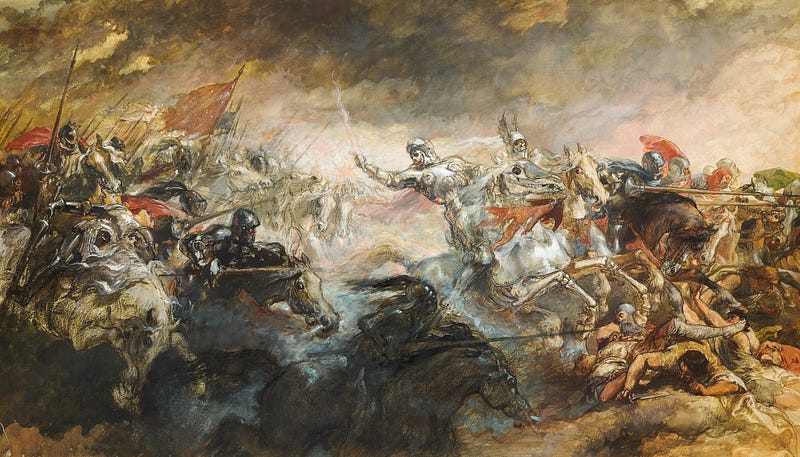# Enhancing Media Literacy: Navigating Conflicting Narratives
Written on
Chapter 1: Understanding the Media Landscape
As tensions rise in Gaza and Israel engages in extensive military actions, it can be daunting to keep up with the unfolding events in the Middle East. The tragic impact on civilians and journalists in Gaza often overshadows other global conflicts, such as the ongoing war in Ukraine.
In this context, how can we effectively process the constant influx of news when the primary aim of the media is often to capture our attention and cultivate a loyal audience? If you live in a pro-Israel country, you may rarely hear about the hardships faced by Palestinians in Gaza, or you might view the expansion of settlements as a legitimate Israeli right. Conversely, growing up in a nation that opposes Israel’s actions may lead you to interpret Hamas's actions as expressions of frustration against occupation.
These perspectives are frequently influenced by the media we consume. While the media has several roles, including education, information dissemination, and the promotion of democracy, it also has a darker side, which is propaganda.
Section 1.1: The Importance of Media Literacy
To avoid being misled by biased reporting, it's crucial to critically analyze the information we come across before reacting emotionally. Such reactions can easily lead to the spread of discrimination, hatred, or an unyielding allegiance to one side of a conflict.
Media literacy is akin to traditional literacy in many ways. Just as reading begins with recognizing letters and progresses to understanding words, media literacy starts with identifying different forms of media and comprehending the messages they deliver.
In the digital age, we are exposed to a vast array of information sources, which extend far beyond traditional media. Yet, every piece of media serves a specific purpose. Grasping this underlying intent is fundamental to developing media literacy.

Chapter 2: Developing Critical Media Skills
The ease of creating media content in today's digital environment often leaves us unaware of its source, intent, and credibility. Thus, acquiring media literacy skills can be complex, yet it is an essential competency in our digital world.
Media literacy equips individuals to:
- Cultivate Critical Thinking Skills: By assessing media content, individuals learn to evaluate whether the messages are coherent, what information may have been excluded, and what the central ideas are.
- Become Discerning Consumers: Media literacy helps individuals determine the reliability of information and recognize the persuasive intent behind advertisements, enabling them to resist marketing tactics.
- Recognize Diverse Perspectives: Media creators inherently present a viewpoint. Understanding the creator's perspective enhances appreciation for various viewpoints and contextualizes information within one’s existing knowledge.
- Create Responsible Media: Acknowledging one's perspective, communicating effectively, and understanding the impact of one’s messages are critical for meaningful communication.
- Understand Media's Role in Culture: From celebrity gossip to memes, media shapes our perceptions and influences our thoughts and behaviors.
- Comprehend Authorial Intent: It's vital to discern what an author aims to convey through their media content. Understanding the influences behind a media piece allows individuals to make informed choices.

Description: Discover effective strategies to enhance your news literacy and navigate complex media landscapes in this informative video.
Description: Tessa Jolls discusses media literacy as a strategic defense strategy, emphasizing its importance in today's complex information environment.
Section 2.1: Key Questions for Media Consumption
When engaging with news across various media channels, it’s crucial to ask yourself:
- Who created this content, and what motivated them?
- Why was this content produced?
- Who is the intended audience?
- What information might have been omitted, and why?
- Does the content represent multiple perspectives or present a biased view?
- How does this content make you feel, and would others react similarly?
Incorporating these media literacy skills into our daily routines is essential for fostering critical thinking and responsible consumption. By asking these fundamental questions and backing our opinions with examples, we can learn to evaluate media content effectively, understand its purpose, and make informed judgments.

Ultimately, media literacy empowers us to navigate the intricate media landscape and comprehend the conflicting narratives that shape our understanding of the world. It’s essential to remember that in any conflict, children on all sides suffer, facing injuries, displacement, or trauma.